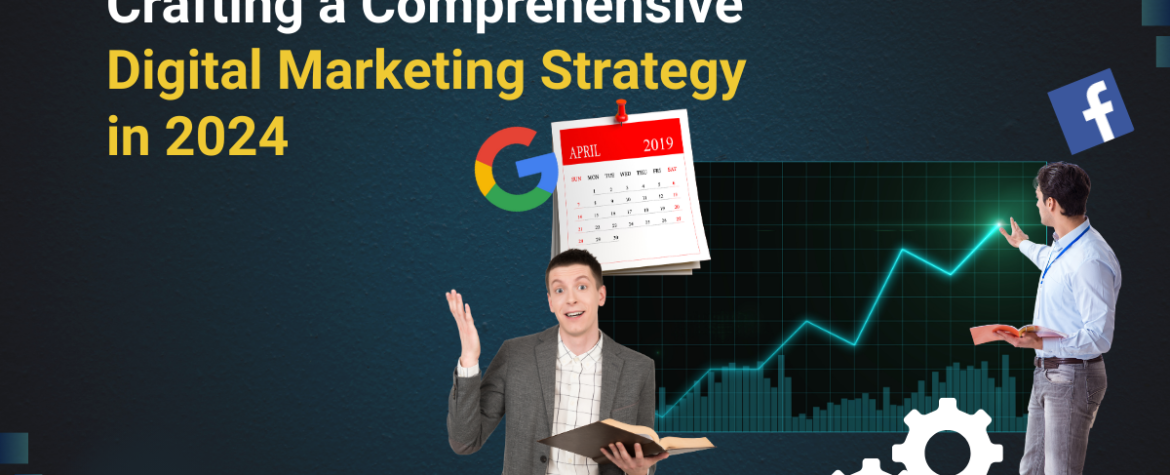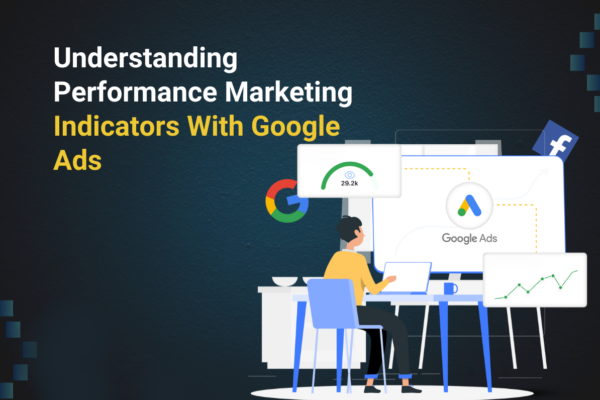Crafting a Comprehensive Digital Marketing Strategy in 2024
In today’s rapidly evolving digital landscape, the way businesses connect with their audiences and market their products or services has undergone a significant transformation. Traditional advertising methods such as radio ads and TV commercials are gradually becoming less effective, giving rise to the importance of a well-crafted digital marketing strategy. In this blog, we’ll explore the key components, stages, and benefits of a comprehensive digital marketing strategy tailored for success in 2024 and beyond.
Understanding Digital Marketing Strategy
A digital marketing strategy is essentially a roadmap that utilizes various online channels and tools to achieve specific business goals and objectives. It encompasses a wide range of activities including content marketing, social media engagement, search engine optimization, email marketing, and more. In today’s digitally-driven world, where people are constantly connected through digital devices, having a solid digital marketing strategy is crucial for businesses to thrive.
Distinguishing Digital Marketing from Digital Strategy
Before delving deeper, it’s important to differentiate between digital marketing and digital strategy. Digital marketing refers to the actual execution of specific tactics and campaigns using digital channels to reach and engage with the target audience. On the other hand, digital strategy involves the broader planning and coordination of these tactics to ensure they align with the overall business goals, ensuring consistency and effectiveness in achieving desired outcomes.
Why a Strategic Approach Matters
Adopting a strategic approach to digital marketing is essential for several reasons:
Competitive Advantage: A well-defined digital strategy can give businesses a competitive edge by helping them stand out in crowded marketplaces.
Targeted Audience Reach: Understanding the demographics, behaviors, and preferences of the target audience allows businesses to tailor their marketing efforts for maximum impact and relevance.
Cost-Effectiveness: Digital marketing often provides more cost-effective ways to reach and engage with audiences compared to traditional advertising methods, especially through targeted advertising and content promotion.
Measurable Results: Digital marketing tools and analytics platforms offer valuable insights into campaign performance, enabling businesses to measure the effectiveness of their strategies and make data-driven decisions.
Global Reach: With the internet bridging geographical boundaries, businesses can reach a global audience and expand their market reach through digital channels.
Key Components of an Effective Digital Marketing Strategy
To create a comprehensive digital marketing strategy, several key components need to be considered and integrated cohesively:
SMART Goals: Setting Specific, Measurable, Achievable, Relevant, and Time-bound (SMART) goals forms the foundation of a successful digital strategy. Clear objectives help align digital marketing efforts with overarching business goals.
Audience Segmentation: Identifying and segmenting the target audience based on demographics, psychographics, behaviors, and preferences enables personalized and targeted marketing campaigns.
Content Strategy: Developing a robust content strategy that includes creating engaging and relevant content across various formats such as blogs, videos, infographics, and social media posts helps attract, educate, and convert prospects into customers.
Channel Selection: Choosing the right digital channels and platforms based on audience behavior and preferences, including social media platforms, search engines, email marketing, and display advertising, maximizes reach and engagement.
SEO and SEM: Implementing effective search engine optimization (SEO) and search engine marketing (SEM) strategies to improve organic visibility, drive traffic, and enhance search engine rankings.
Social Media Engagement: Leveraging social media platforms strategically to build brand awareness, foster customer relationships, and drive engagement through content sharing, community building, and influencer collaborations.
Email Marketing: Utilizing email marketing campaigns for lead nurturing, customer retention, promotional offers, and personalized communication to connect with audiences directly.
Analytics and Measurement: Employing analytics tools and performance metrics to track, analyze, and optimize campaign performance, identify trends, and make data-driven decisions for continuous improvement.
The Seven Stages of Digital Marketing Strategy
A well-structured digital marketing strategy typically involves the following stages:
Research and Planning: Conduct market research, competitor analysis, audience segmentation, and goal setting to inform strategy development.
Content Creation and Optimization: Developing high-quality, optimized content aligned with audience needs and search intent across relevant digital channels.
SEO and Website Optimization: Implementing SEO best practices, optimizing website structure and content, and improving user experience to enhance organic visibility and website performance.
Social Media and Community Building: Engaging with audiences on social media platforms, building a community of followers, and fostering brand advocacy through authentic interactions.
Paid Advertising and Promotion: Running targeted paid advertising campaigns, including PPC (pay-per-click), display ads, social media ads, and sponsored content to reach specific audience segments and drive conversions.
Email Marketing and Automation: Creating personalized email campaigns, automating workflows, segmenting email lists, and nurturing leads through tailored communication strategies.
Analytics, Monitoring, and Optimization: Monitoring campaign performance, analyzing key metrics, identifying insights, and optimizing strategies based on data-driven findings to improve ROI and achieve desired outcomes.
360 Digital Idea: Your Partner in Digital Success
At 360 Digital Idea, we specialize in creating customized digital marketing strategies tailored to your business needs and objectives. Our team of experts combines industry knowledge, strategic thinking, and cutting-edge tools to maximize your online presence, drive targeted traffic, and generate measurable results.
Our services include:
Digital Strategy Consulting: Comprehensive analysis, strategy development, and implementation planning aligned with your business goals.
Content Marketing: Content creation, optimization, distribution, and performance measurement across diverse digital platforms.
SEO and SEM Services: Organic search optimization, paid search campaigns, keyword research, and website optimization for improved visibility and traffic.
Social Media Management: Social media strategy, content planning, community engagement, influencer partnerships, and performance tracking.
Partner with 360 Digital Idea for a transformative digital marketing journey that drives growth, fosters innovation and achieves measurable success in today’s dynamic digital landscape. Let’s collaborate to elevate your digital presence and achieve your business goals effectively and efficiently.
FAQ
What is a digital marketing strategy, and why is it important?
A digital marketing strategy is a strategic plan that uses various online channels and tools to achieve specific business objectives. It’s crucial because it helps businesses stand out in competitive markets, reach their target audience effectively, and achieve measurable results through cost-effective digital tactics.
What’s the difference between digital marketing and digital strategy?
Digital marketing refers to the execution of specific tactics using digital channels, while digital strategy involves the overarching planning and coordination of these tactics to align with broader business goals, ensuring coherence and effectiveness in achieving desired outcomes.
What are some key components of an effective digital marketing strategy
Key components include setting SMART goals, audience segmentation, content strategy, channel selection, SEO and SEM, social media engagement, email marketing, and analytics for continuous optimization and improvement.
What are the benefits of having a well-planned digital marketing strategy?
Benefits include increased online visibility, targeted audience reach, cost-effectiveness, measurable results, and ROI, enhanced customer engagement, competitive advantage, global reach and market expansion, and data-driven insights for informed decision-making.
What are the seven stages of a digital marketing strategy?
The seven stages are research and planning, content creation and optimization, SEO and website optimization, social media and community building paid advertising and promotion, email marketing and automation, and analytics, monitoring, and optimization.
For more Blogs:- Top SEO Companies in Delhi, website developer company near me, Digital marketing company in Delhi NCR, Lead Generation Marketing Agency Dwarka, Delhi


















Leave a Reply